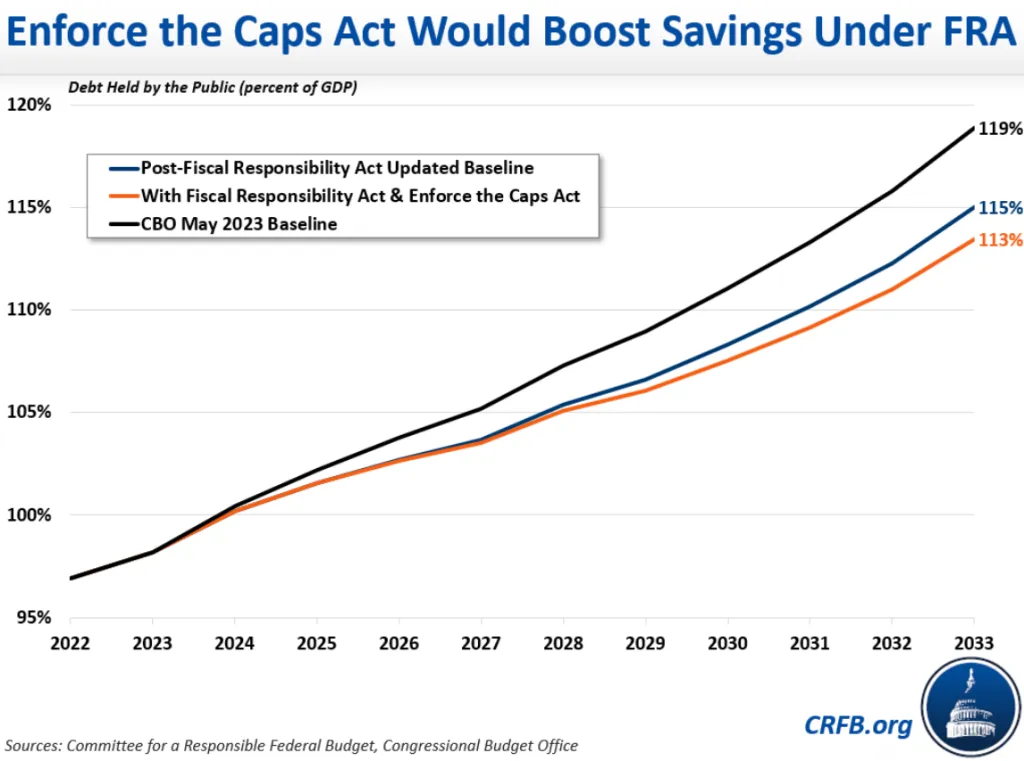Rep. Grothman Introduces Bill to Enforce FY 2026-2029 Spending Caps
Representative Glenn Grothman (R-WI) recently introduced the Enforce the Caps Act in the House, along with nearly a dozen co-sponsors. The legislation would add the same enforcement measure to the discretionary spending caps set by the Fiscal Responsibility Act (FRA) for Fiscal Years (FY) 2026 through 2029 into law as is already in place for the FY 2024 and 2025 caps.
The FRA included two years of binding spending caps and four additional years of targets for appropriations. After the binding caps expire in FY 2025, the targets would continue to grow at 1 percent annually through FY 2029. We recently estimated that enforcing the post-2025 targets from the FRA would help maximize its savings potential. This bill would add sequestration – which refers to automatic, across-the-board spending cuts – to the currently non-binding targets, making them a hard spending limit.
Meeting the FY 2026-2029 targets would produce an additional $225 billion of direct savings and $330 billion of indirect savings, boosting estimated savings under the debt ceiling agreement to $2.1 trillion by FY 2033. As a result, debt held by the public would equal 113 percent of GDP in 2033 instead of 115 percent under current law.

Importantly, the FRA’s ultimate deficit reduction will be based on whether lawmakers abide by reported side agreements that will boost appropriations for FY 2024 and 2025.
Committee for a Responsible Federal Budget president Maya MacGuineas praised the bill’s introduction:
“The Enforce the Caps Act would add real teeth to the Fiscal Responsibility Act beyond 2025, codifying more than half a trillion of deficit reduction in the process. We applaud Representative Grothman for his initiative in introducing this important bill. Although the Fiscal Responsibility Act was the largest and most important deficit reduction bill in over a decade, it does not include a mechanism to truly enforce its savings or discretionary targets beyond 2025. The ECA would extend the statutory caps in place for 2024 and 2025, limiting appropriations growth to 1 percent per year through 2029. Members have already voted for these spending levels as targets under the FRA, so it only makes sense to make them real. In doing so, the Enforce the Caps Act would play a significant role in improving America’s fiscal future.”
Agreeing to and abiding by reasonable discretionary spending caps can play a role in improving the nation’s fiscal outlook. The Enforce the Caps Act would help ensure commitment to that goal.


